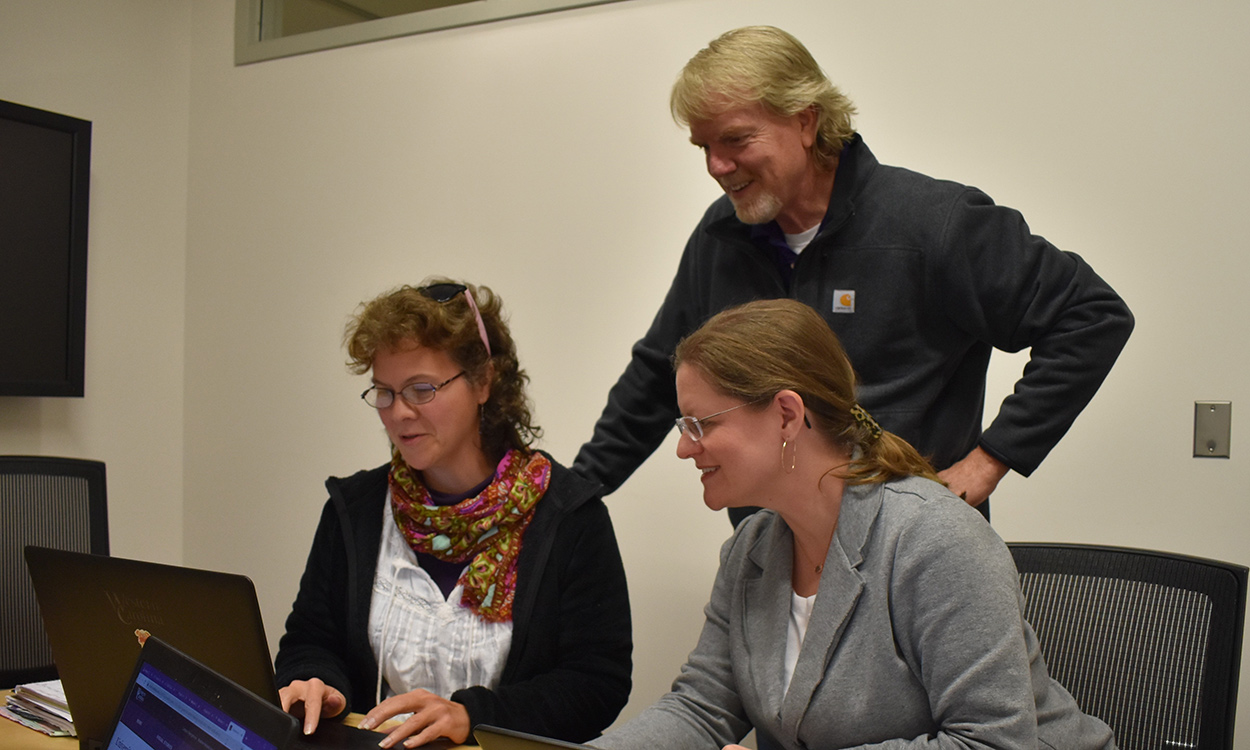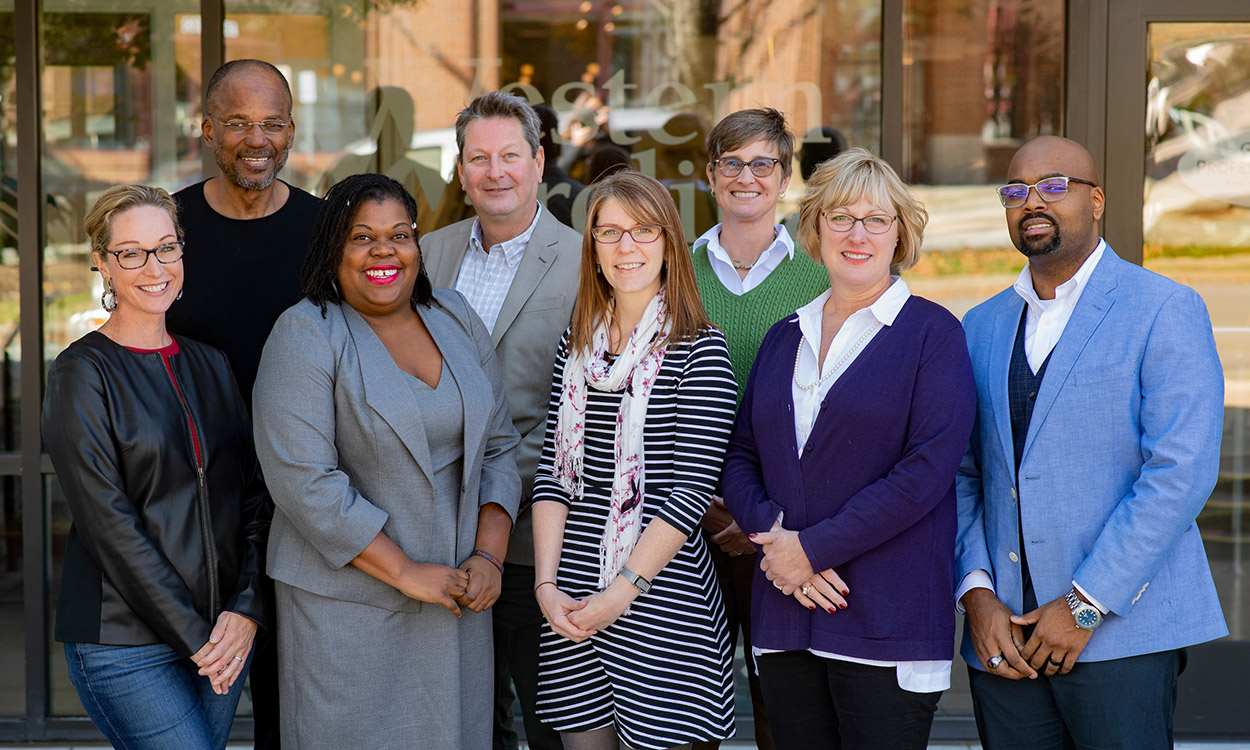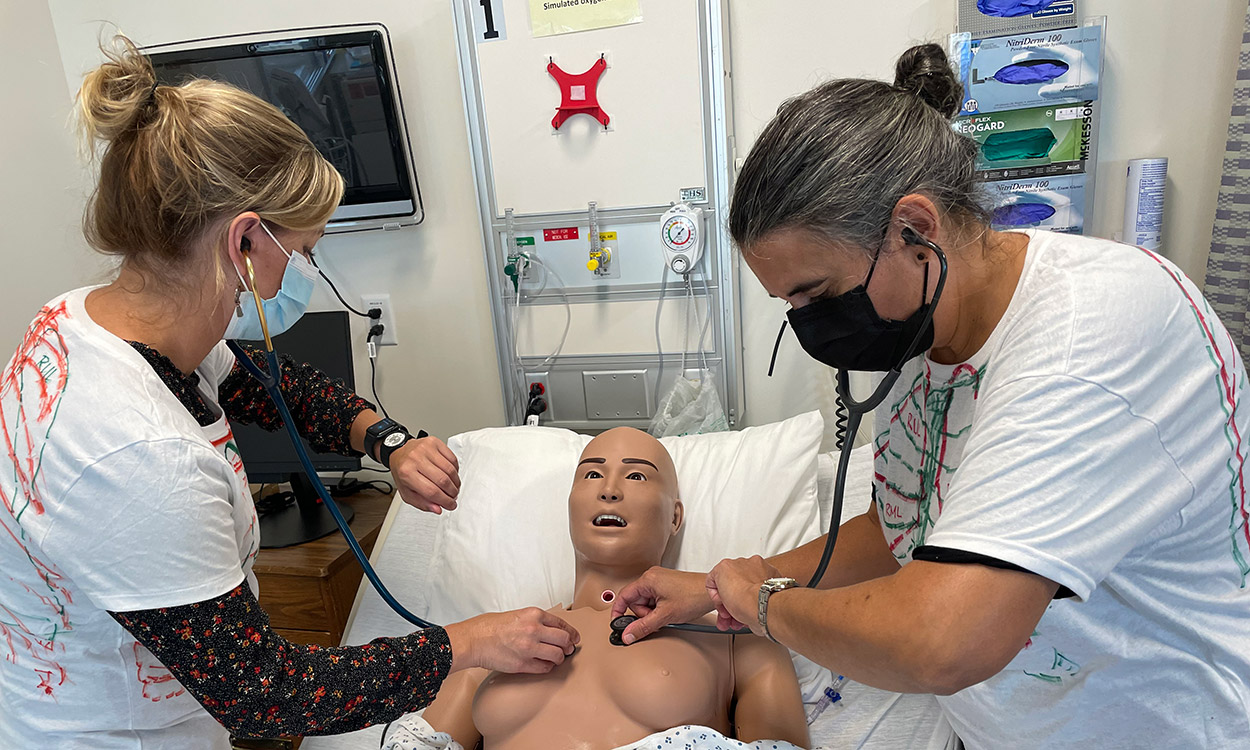Project INTERACT's first cohort success encourages future participants
Project INTERACT instructors (from left) Karena Cooper-Duffy, Billy T. Ogletree and Johanna Price connect with participating graduate students through a Zoom session.
Project INTERACT, an interprofessional collaboration program to prepare graduate students for future careers working with children on the autism spectrum, is building on its exceptional initial success.
Western Carolina University established the program – an acronym that stands for INTER-professional Autism Collaborative Training – in 2019, with the first cohort beginning in 2020. Participating students receive one year of graduate school tuition free, at an in-state rate, access to a travel fund for continuing education and, upon completion of instructional requirements, a certificate of training. Studies are with nationally recognized faculty and hands-on work with families of local children with autism.
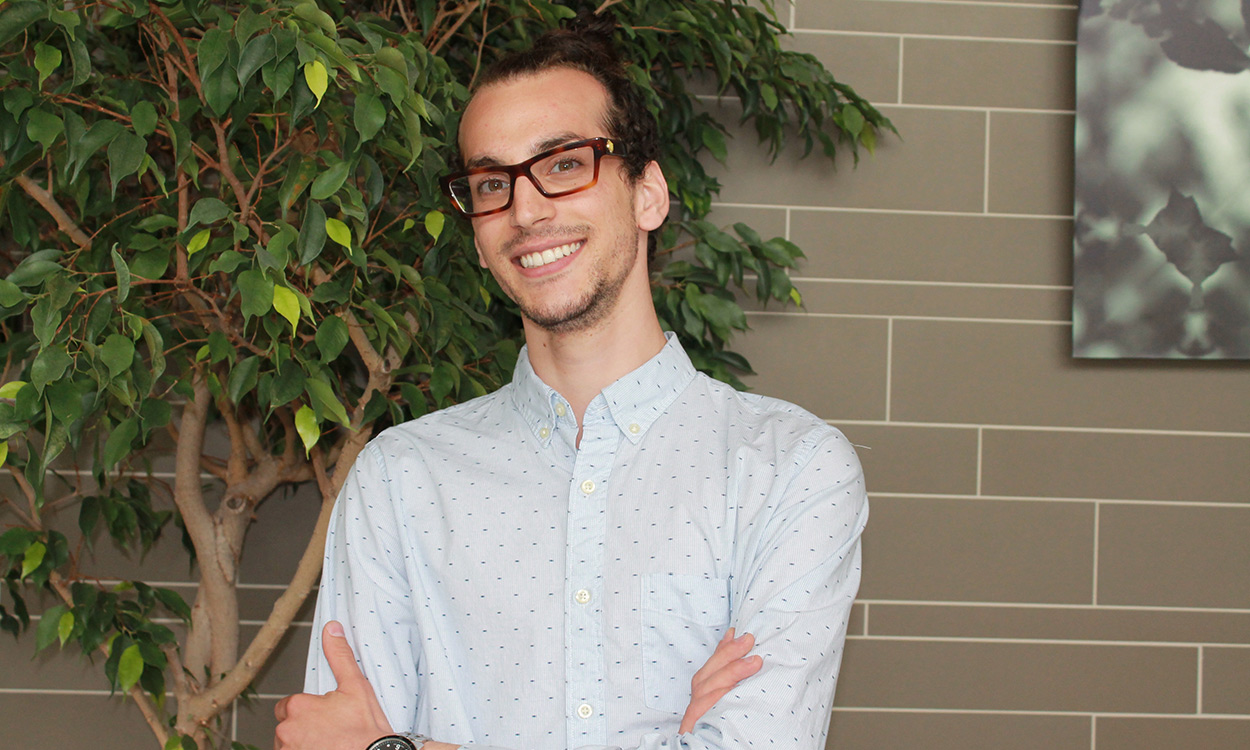
Nicholas Fasanello
“This is an invaluable experience for anyone with a committed interest in working with, and advancing the field of autism spectrum disorder and moderate to severe intellectual disabilities,” said Nicholas Fasanello, a graduate student in Communication Sciences and Disorders. “I became involved in Project INTERACT purely out of genuine interest. Prior to beginning my graduate studies in speech language pathology, I immersed myself in the world of autism spectrum disorder and moderate to severe intellectual disabilities as best as I could: reading and observing.
“My first clinical placement upon starting my graduate work at Western Carolina University was in a self-contained classroom in an elementary school in Cullowhee, where I was able to confirm my love for working within that population,” Fasanello said. “When I learned about the Project INTERACT opportunity, and the opportunity to specialize within my graduate program, I knew I just had to apply.”
Project INTERACT is led by professor Billy Ogletree with the Department of Communication Sciences and Disorders and co-directed by Jon Campbell, director of the doctoral program in psychology; Karena Cooper-Duffy, professor of special education; and associate professor Johanna Price and associate professor Amy Rose, both in the Department of Communication Sciences and Disorders.
“Project INTERACT has an online autism clinic,” said Cooper-Duffy. “This provides faculty and scholars the opportunity to apply concepts acquired in the graduate courses with families who have children with autism. The online clinic experience enables the scholars to meet with families, learn what families need, identify and administer assessments, as well as interventions under supervision of project faculty.”
Along with regular scheduled classes, project scholars engage in team-based presentations and assessment sessions with client families, as well as intervention sessions and development of home exercise programs.
“We are also given the opportunity to complete highly respected certification programs that have already proved useful in my clinical practice,” said Fasanello. “All classes are online via Zoom, with a healthy mix of synchronous and asynchronous sessions. The expert level faculty provide us with cutting edge research, theories and resources that will continue to inform my clinical practice.”
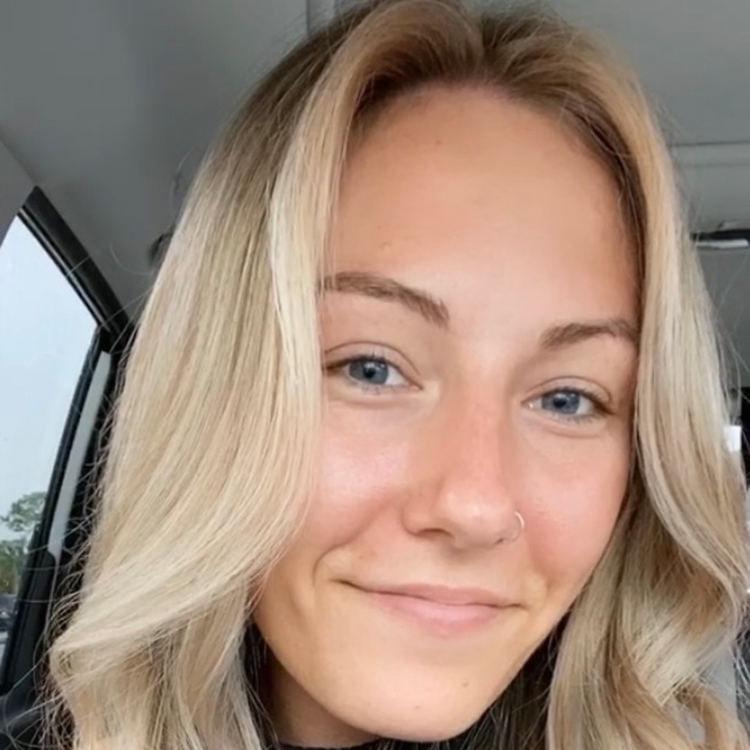
Ashley Addonisio
Participating graduate student Ashley Addonisio’s experience with Project INTERACT has been nothing shy of amazing, she said. “The opportunity to work on a team with two incredible graduate students from the Special Education and Speech Language departments has greatly enhanced my training as a clinical psychologist,” said Addonisio. “Working on an interdisciplinary team to support our assigned family was extremely rewarding. I learned that it truly does take a team effort to provide assessment and intervention services to view the client family as a whole, instead of through the narrow lens of one discipline.
“This experience helped me navigate the fluidity of roles on a team,” she said. “The goal is always client-focused care, so at times it was beneficial for me to take on the role of leader and other times I was needed as a supporting role to my colleagues. I’d highly recommend this program to any psychology, speech language, or special education graduate student with an interest in ASD and interprofessional work. This experience exceeded my expectations.”
Funded by a $1.25 million grant by the U.S. Department of Education, the goal is to train 60 graduate students in psychology, special education and speech-language pathology programs over the course of the next five years to address the complex needs of children with autism spectrum disorders.
“After my August 2023 graduation, I aspire to work with children in community mental health or in an ASD specific clinic,” said Addonisio. “I plan to stay in Western North Carolina for a few years to help reach the underserved rural population in this area. I would eventually like to incorporate animal assisted therapy in my work.”
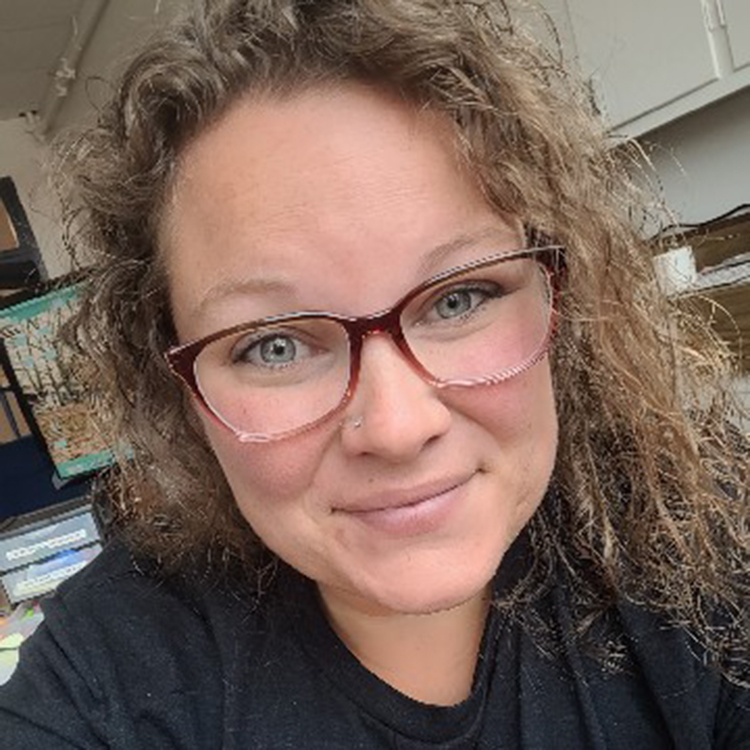
Nikki Whisnant
Nikki Whisnant, seeking her master’s degree in special education, is still determining her career priorities while being appreciative of the team experience she is gaining through Project INTERACT.
“This program has been an amazing experience for me and developing my skills in collaborating with teams to have the best success possible for the students I serve now and in the future. Working with Nick and Ashley have been a true blessing and we all complemented each other really well,” said Whisnant. “Being able to have them to lean on, in areas where my weaknesses were their strengths helped me grow as a professional and accept saying ‘I don't know much about this. Can you explain it to me.’ Also, being able to hear their perspectives on subjects was enlightening as well.”
Being a part of the project has shaped her education by providing knowledge, expertise and interventions for the students - both now and in the future, she said.
Learn more about Project INTERACT or contact Ogletree at ogletree@wcu.edu or 828-227-3379.
